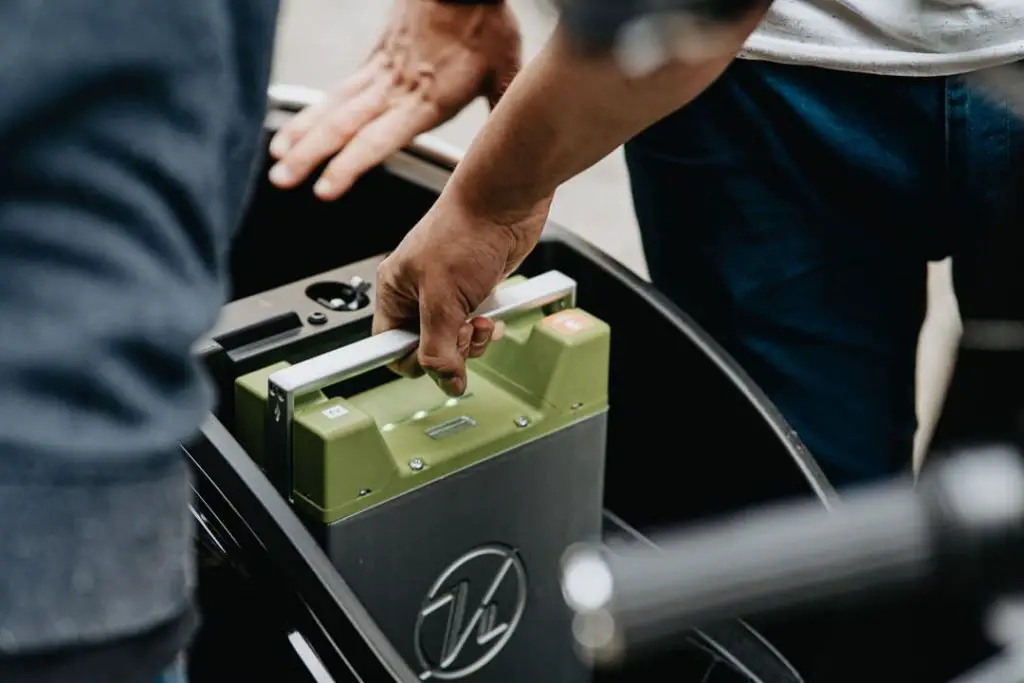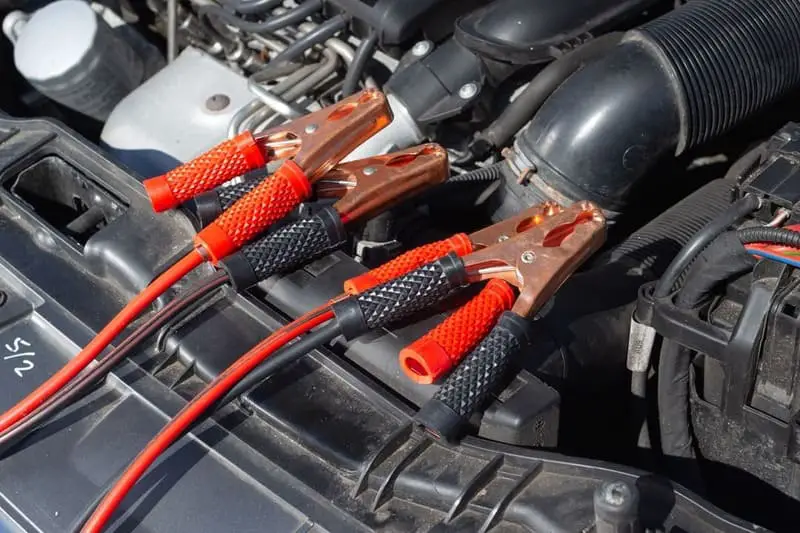When most people hear the term “battery,” they think of the small metal objects that power their electronics. However, there is another type of battery, one that is used to store energy-producing potential for use in electric vehicles and grid storage.

Batteries provide energy for a number of devices, from cars to cell phones. But what happens if a battery runs out of water?
The electrolyte in the battery is what creates the electrical current, and without water, the electrolyte can’t do its job. This means that the battery will not work and could even be damaged. So it’s important to keep your batteries topped up with water! Keep reading to find out.
Why car battery runs out of water?
A car battery is an essential component of any vehicle. Without it, your car would not be able to start. The battery provides the electrical current that is necessary to power the engine.
However, over time, batteries can lose their charge and require frequent recharging. One of the main reasons why batteries run out of juice is because they lose water.
The water in a battery helps to create the electrical current that powers the engine. However, as the battery loses water, it becomes less effective at producing this current. As a result, batteries need to be regularly topped off with water in order to stay healthy and function properly.
A car battery is a lead-acid battery, and as such it uses a chemical reaction between lead and sulfuric acid to create the electrical current that powers your car.
Over time, this reaction causes the water in the battery to evaporate, and if it isn’t replaced, the battery will eventually fail. The main reason that car batteries run out of water is simply due to evaporation.
However, there are a few other factors that can contribute to the problem. For example, if your battery is regularly exposed to high temperatures, the water will evaporate more quickly.
Additionally, if you frequently use your headlights or other accessories that draw a lot of power, this can also speed up the evaporation process.
In general, it’s a good idea to check your battery’s water level every few months to make sure that it stays topped off. By maintaining your battery and keeping it filled with water, you can help extend its lifespan and prevent costly repairs down the road.
What happens if a battery runs out of water?

A battery typically contains a number of cells, each of which is filled with a mixture of water and sulfuric acid. This mixture is known as an electrolyte, and it helps to conduct electricity between the positive and negative poles of the battery.
If a battery runs out of water, the electrolyte will no longer be able to flow freely between the cells. As a result, the battery will be unable to generate power and will eventually fail.
In some cases, a battery may be able to be recharged if it has run out of water. However, this is not always possible, and it is generally best to replace the battery if it has been depleted of its electrolyte.
If a battery runs out of water, the reaction will stop and the battery will be unable to generate any power. Without water, the electrolyte will become too concentrated and will no longer be able to facilitate the flow of ions. As a result, the battery will be effectively dead.
In some cases, running a dry battery too long can actually damage it beyond repair. So if you want to keep your battery in good working condition, make sure to keep it filled with water.
Will adding water to the battery help?
If your car battery is dead, you might be wondering if adding water to it will help. The answer is maybe. If the battery is very old and the cells are crusted with deposits, adding water won’t help. In fact, it could make things worse by causing a short circuit.
However, if the battery is new or only slightly degraded, adding water might help to improve its performance. The water will help to keep the cells cool and increase their power output. Just be sure to use distilled water so that there’s no risk of damaging the battery.
It’s a common misconception that adding water to a car battery will help it last longer. In fact, the opposite is true – adding water to a battery can actually shorten its lifespan. The reason for this is that water can cause corrosion and rust, which can damage the battery cells.
In addition, water can also interfere with the charging process, making it difficult for the battery to reach full capacity. As a result, it’s best to avoid adding water to your car battery. If the battery is low on fluid, it’s best to have it professionally serviced.
How do I know if my battery needs water?
To help keep your battery healthy and prevent damage, it’s important to check the water level regularly and top up if necessary. Here are a few simple tips to help you determine whether your battery needs water:
1. Check the owner’s manual for your specific vehicle. Some manufacturers recommend checking the battery every month or two, while others may not have any recommendations.
2. Take a look at the battery case. If the level of the electrolyte is below the lead plates, then your battery needs water.
3. Check the voltage of the battery using a voltmeter. A fully charged battery should have a voltage of 12.6 volts or higher. If the voltage is below 12.6 volts, then your battery may need water.
4. Perform a load test on the battery using a load tester. This will tell you whether the battery is able to hold a charge and whether it needs to be recharged or replaced.
Most people are familiar with the fact that car batteries need to be regularly maintained in order to function properly. However, many people are less familiar with the fact that some batteries also need water.
If you have a battery that needs water, there are a few telltale signs to look out for. One of the most obvious signs is corrosion on the battery terminals.
Another sign is a battery that won’t hold a charge or starts to lose power quickly. If you notice either of these signs, it’s important to check the level of water in the battery. If the level is low, you’ll need to add distilled water until it reaches the fill line.
Can I put bottled water in a battery?
While it is technically possible to put bottled water in a battery, it is not recommended. Bottled water contains minerals that can damage the battery, and it also has a higher pH level than distilled water. As a result, using bottled water in a battery can shorten its lifespan and reduce its overall performance.
If you need to add water to your battery, it is best to use distilled water that has been specifically treated for use in batteries. This type of water does not contain any minerals or other impurities that could damage the battery, and it will help to prolong its lifespan.
To prevent this from happening, car manufacturers recommend adding distilled water to the battery on a regular basis. However, some people mistakenly believe that they can save money by using bottled water instead of distilled water.
Unfortunately, this is not the case. Bottled water contains impurities that can actually damage the battery, so it is always best to use distilled water when topping up your battery.
How often should you add water to the car battery?
A car battery is an essential component of any vehicle, and it is important to keep it properly maintained. One important part of battery maintenance is adding water to the cells. This should be done every few months, or as needed. If the water level gets too low, it can lead to damage or failure of the battery.
Additionally, it is important to use distilled water when adding water to the car battery, as this will help to prevent the build-up of minerals and other impurities
In fact, adding water to a sealed battery can actually be harmful, as it can cause the battery to overheat or leak. So, unless there is a specific reason to do so, there is no need to add water to the car battery.
If the level of fluid in the battery does get low, it is best to have a professional check it out to ensure that there are no other issues.
Conclusion
A battery is like a human, it needs water to function. Without enough water, your car won’t start and the same goes for a battery. If you find yourself in a situation where your battery has run out of water, don’t fret! You can bring it back to life by following these simple steps.
Additional Contents:
What Happens To Tattoos When You Lose Weight
Do Fingerprints Grow Back If Burnt?
Can a Turtle be Without a Shell?
PPS Or PSS?
How to Unscrew a Stripped Screw



